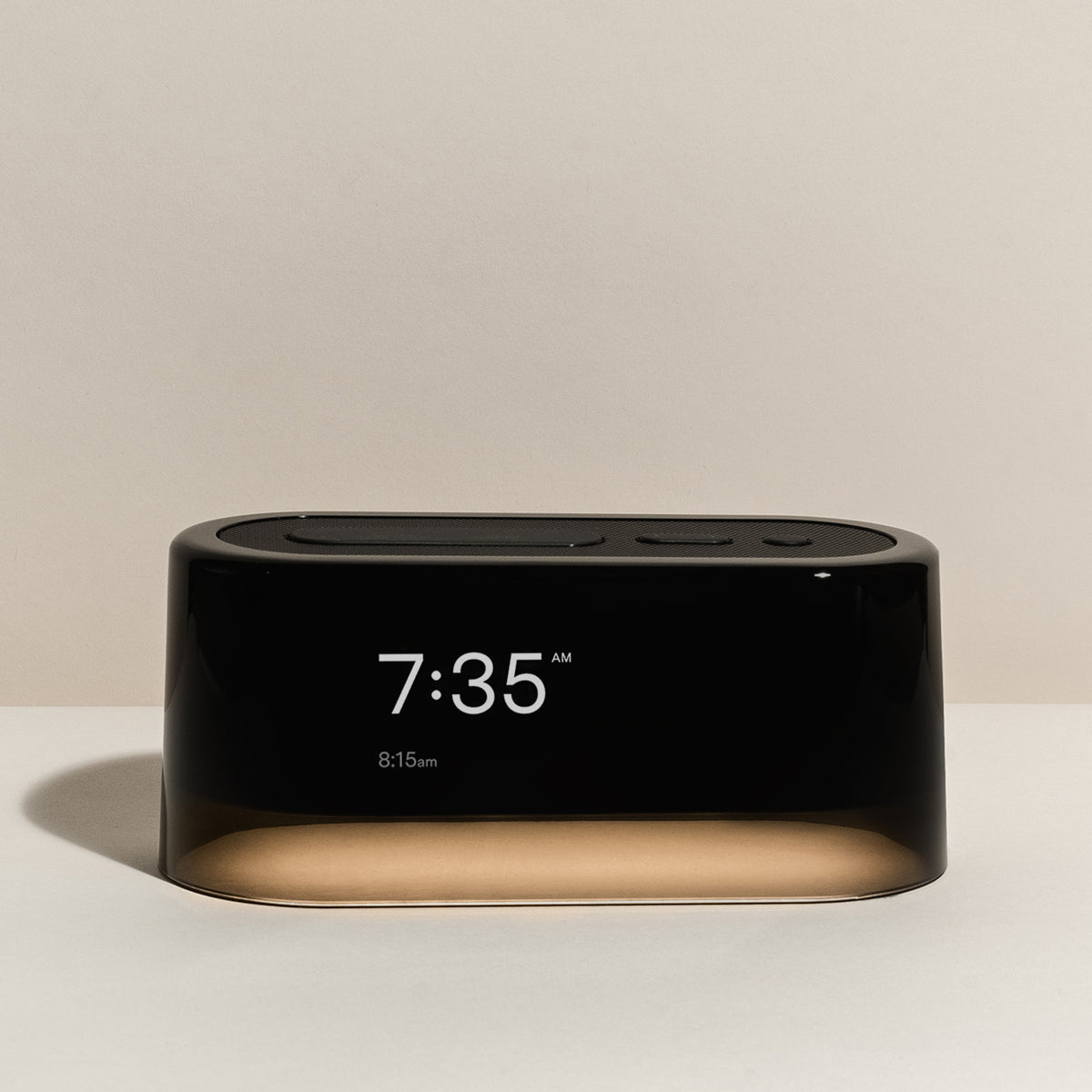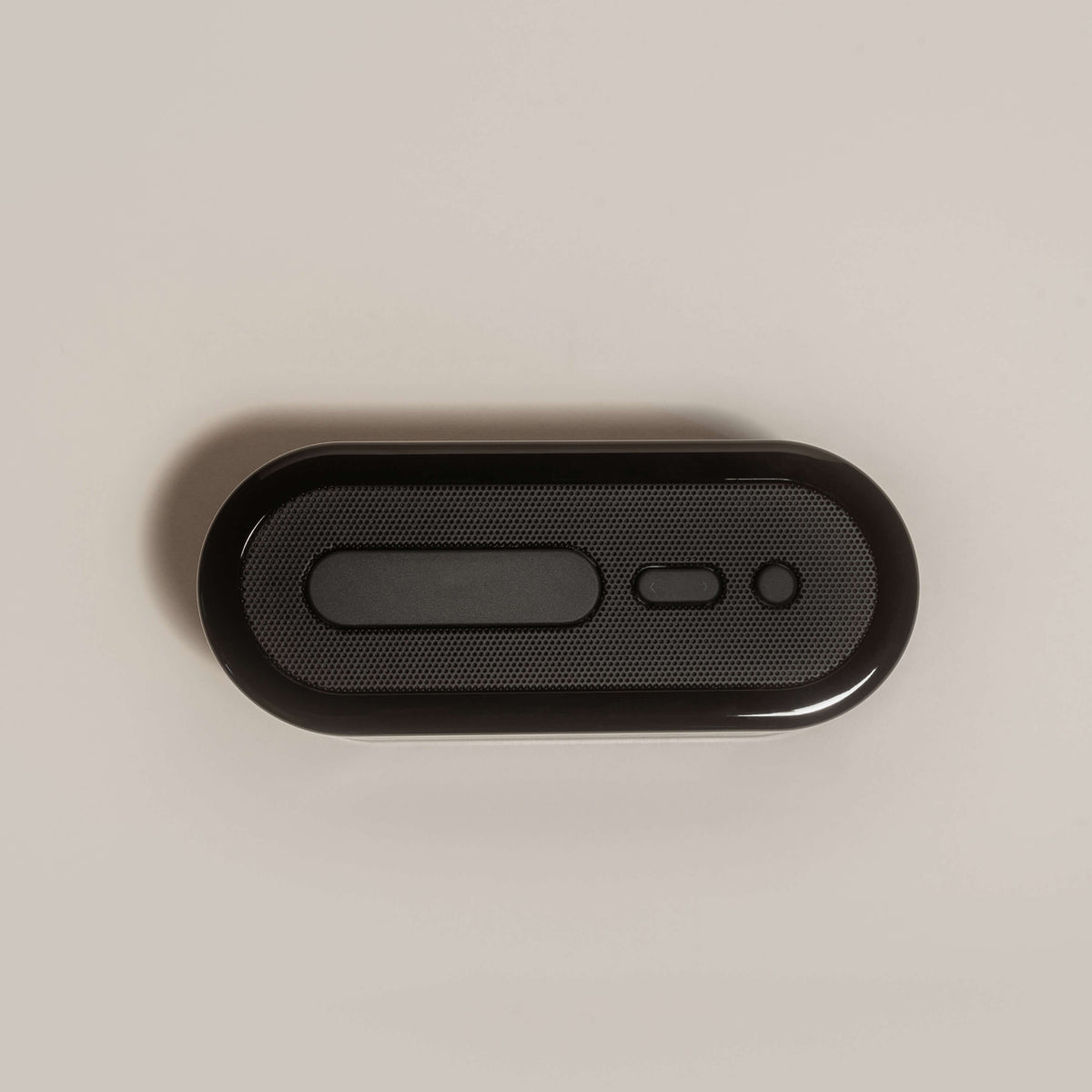






Loftie Sleep Mask - Gift
$0.00
Size:
Size
FREE SHIPPING
Our sleep mask is made of silky, breathable material to keep skin feeling fresh while completely blocking out disruptive light. Hidden eye cups and a triangle band connection are specifically designed to alleviate pressure and fit comfortably on all head sizes.
Pairs Well With
Waking up to wellness
The Loftie Times

Sleep and Maternal Mental Health
Paige Bellenbaum is the Founding Director and Chief External Relations Officer of the Motherhood Center.
May is Mother’s Day and it’s also Mental Health Awareness Month. What’s so important to you about this month?
Every day, 1 in 5 new and expecting mothers experience a maternal mental health condition in the U.S. For those of us who do this work - we know that number is actually 1 in 3, but due to the shame and stigma that surrounds mental illness in the perinatal period, 75% of all pregnant and postpartum people stay silent due to fear and judgment.
Maternal mental health conditions are the #1 complication associated with childbirth, and the leading cause of maternal death. The month of May is a critical time for us to drive continued education and awareness of these conditions and help reduce the stigma that surrounds them.
When most people think of postpartum and mental health, they think of postpartum depression. What other symptoms can women experience?
Perinatal mood and anxiety disorders (PMADs), otherwise known as postpartum depression, include a number of diagnoses and symptoms that can strike at any time during pregnancy and up to one year postpartum.
These diagnosis include:
Perinatal Depression
Perinatal Anxiety
Perinatal OCD
Perinatal PTSD
Postpartum Psychosis
The symptoms associated with these diagnosis can include hopelessness, helplessness, crying a lot of the time, not looking forward to things, not feeling connected to the baby, irritability, constant worry about the baby’s health and wellbeing, not being able to sleep even when the baby is sleeping or being cared for, not having an appetite, feeling very overwhelmed, and thoughts of wanting to escape or not be here anymore.
What’s often the trigger for many of these symptoms?
There are a number of risk factors that impact the likelihood of a pregnant or postpartum person developing a PMAD. Some of these include things like recent stressful life events, familial history of mental health conditions, and complications with birth, breastfeeding and the postpartum period.
When a new or expecting mom is not getting enough sleep or is experiencing insomnia - as is often the case pre and postpartum - it can increase her risk for developing a maternal mental health condition like those described above.
How does someone identify if they have a PMAD and what can they do to seek help?
Everyone has a mental health baseline. It’s the place we reside when we are feeling emotionally and psychologically well. The further a pregnant or postpartum person moves away from their baseline, and the more frequent and intense distressing symptoms become, this may suggest a PMAD is at play.
If symptoms are getting in the way of completing daily tasks, or mom taking care of herself and/or her baby, it’s time to seek clinical support and treatment. It’s so important not to wait or white knuckle it - the sooner a new or expecting mom is connected to care, the sooner she can start to feel like herself again.
What advice do you have for new or expecting moms or partners when it comes to preparing for these scenarios?
Know the signs and symptoms. Educate yourself using the resources below and make sure your partner and close family and friends are also aware of what to look for. When a perinatal person is struggling with a PMAD - they are not in a position to find their own help and support, they need their loved ones to throw them a life preserver.
Have a postpartum plan that includes perinatal mental health services in your community - so if you do struggle - you know who to call.
Resources
If you are in the New York tri-state area, call or visit The Motherhood Center at 212-335-0034 or https://themotherhoodcenter.com/.
If you are anywhere else in the U.S. or international visit Postpartum Support International at: https://www.postpartum.net/
With the right support and treatment - everyone can feel better.

How to Sleep
Create a Routine Fit for the Whole Family
Kids aren’t the only ones who thrive on routine. Loftie’s Chief Marketing officer, Liz Rooney, sat down with Perelel’s Co-Founder and Co-CEO, Alex Taylor (both parents of two), to discuss parenting and sleep hacks for the whole family.
Alex, you have two young kids and you run a company that’s growing rapidly. When do you find time to sleep?
Candidly there isn’t a lot of sleep in this season of my life. I would like more but haven’t figured out how to create more hours in the day (yet).
All kidding aside, I do try my best to optimize for better quality sleep with the little sleep I do get. I avoid blue light for at least 2 hours before bed, I sleep in a pitch black room, and play brown noise on my Loftie.
Describe your morning routine. How has it changed since having kids?
I meditate upon waking, have a cup of coffee and then exercise. Then I wake my children and we have breakfast together. This is my favorite part of the entire day. It’s slow, relaxed and I am hyper present.
If we have time, we also read books or simply play for a few minutes. Then, it’s off to the races: We all get ready and I walk the kids to school before driving into the office.
I too feel my best in the morning. It wasn't always true during pregnancy, however. During your pregnancy, what factors were critical in supporting your sleep?
I had a tough time with sleep during both of my pregnancies. I'm a back sleeper so sleeping on my side was a big adjustment.
Unfortunately there weren't great natural OTC pregnancy-safe sleep options when I was pregnant, which inspired us to create Perelel's Sleep Support Powder.
What do you do to help instill great sleep habits in your kids, especially post-travel?
I am a big believer in the power of routine when we're home. The kids take a relaxing bath, we read books, dim the lights, and they fall asleep (only after rattling off about 1,000 random questions). After a vacation, it takes time to readjust but we do our best to stick to our regular "bedtime."
One thing I try to do when changing time zones with the kids is to see the ocean (if possible). Watching the waves helps reset my system to better sync up with wherever I am.
I love that advice. What else do you do to create healthy evening routines for yourself?
I change my phone to red screen mode after 8pm, dim the lights in the house, try to read and quiet my mind… but candidly it can be tough as I always have a lot on my mind.
When I find my mind running, I’ll have a cup of Sleep Support before retiring to bed and that always helps me fall asleep faster.

How to Sleep
How Many Calories Do You Burn While Sleeping?
Wondering how many calories you burn while you're catching some shut-eye? Wonder no more - we've got the answer for you.






